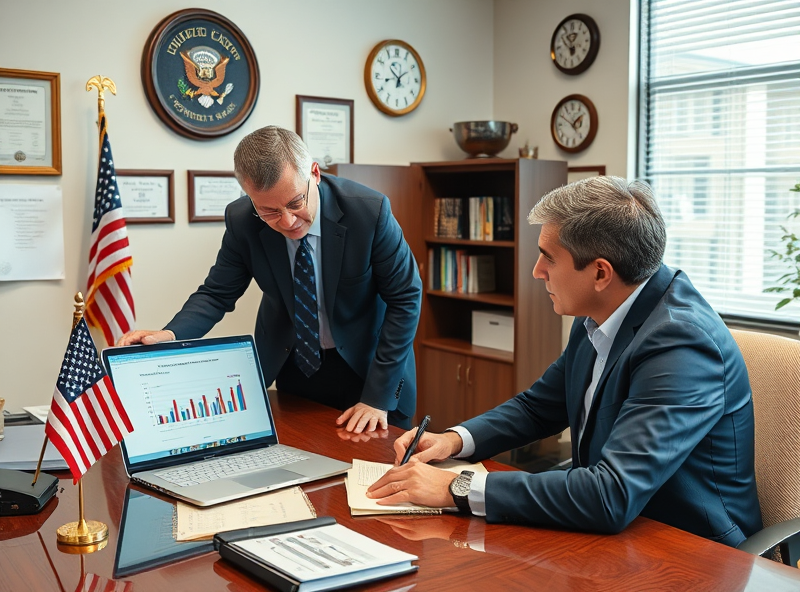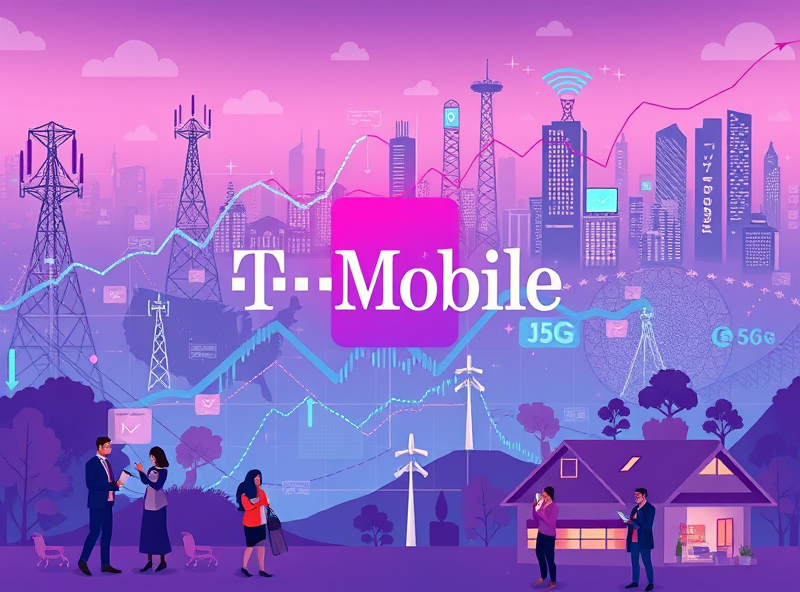
How to Find a Trusted Subsidy Consultant in the U.S.
How to Identify a Credible Subsidy Consultant

Finding a trustworthy subsidy consultant in the U.S. can make a significant difference in securing government grants or financial assistance for your business or personal project. But with so many options available, how do you separate the credible experts from the less reliable ones?
Start by checking for proper credentials. A credible subsidy consultant should have a strong background in finance, public policy, or a related field. Look for certifications such as Certified Grants Management Specialist (CGMS) or affiliations with reputable organizations like the National Grants Management Association (NGMA).
Next, evaluate their track record. Ask for case studies or references from past clients. A reliable consultant will be transparent about their success rates and the types of subsidies they specialize in, whether it’s federal grants, state-level programs, or sector-specific funding.
Transparency is another key indicator. Be cautious of consultants who promise guaranteed results or ask for large upfront fees. A trustworthy consultant will clearly outline their process, fees, and expected outcomes in writing.
Finally, check their knowledge of current subsidy programs. U.S. subsidy policies change frequently, so a credible consultant should be up-to-date with the latest funding opportunities and compliance requirements. You can verify some of this information yourself through official resources like Grants.gov (https://www.grants.gov/), which lists current federal funding opportunities.
By taking these steps, you’ll be better equipped to choose a consultant who can genuinely help you navigate the complex world of subsidies and maximize your chances of success.
Common Red Flags to Watch Out For

When searching for a trusted subsidy consultant in the U.S., it’s essential to stay alert for warning signs that could indicate fraud or incompetence. While many consultants are legitimate and helpful, some may take advantage of clients who are unfamiliar with the subsidy application process. Here are some common red flags to be aware of:
1. ❌ Guarantees of Approval: No consultant can guarantee that your subsidy application will be approved. If someone promises 100% success, it’s a major red flag. Subsidy programs are subject to strict eligibility criteria and government review.
2. 💰 Upfront Payment Demands: Be cautious if a consultant asks for large upfront fees before providing any services. Reputable consultants typically charge based on milestones or after delivering results.
3. 🕵️ Lack of Transparency: If a consultant is vague about their process, experience, or credentials, proceed with caution. You should always be able to verify their background and client references.
4. 📄 Pressure to Sign Quickly: High-pressure tactics to get you to sign a contract immediately can indicate a scam. Take your time to review all documents and consider getting legal advice before committing.
5. 📉 No Track Record or Online Presence: A lack of online reviews, a professional website, or verifiable history in subsidy consulting can be a sign that the consultant is not established or trustworthy.
6. 🧾 Refusal to Provide a Written Agreement: A credible consultant will always provide a written contract outlining the scope of work, fees, and terms. Avoid anyone who refuses to document the agreement.
To protect yourself, always research the consultant thoroughly. Check with the Better Business Bureau (https://www.bbb.org/) or your state’s consumer protection office to see if there are any complaints or disciplinary actions. Being informed and cautious can save you time, money, and stress in the long run.
How to Identify a Credible Subsidy Consultant

Finding a trustworthy subsidy consultant in the U.S. can make a significant difference in securing funding for your business, nonprofit, or personal project. With countless professionals offering grant and subsidy services, it’s essential to know how to separate the credible experts from those who may not have your best interests at heart.
Start by verifying credentials. A reliable subsidy consultant should have a background in public policy, finance, or grant management. Look for certifications such as Certified Grants Management Specialist (CGMS) or affiliations with professional organizations like the National Grants Management Association (NGMA).
Next, review their track record. Ask for case studies or references from previous clients. A reputable consultant will be transparent about their success rates and the types of subsidies they specialize in—whether federal, state, or private.
Transparency in fees is another critical factor. Avoid consultants who charge high upfront fees or guarantee funding—no consultant can promise approval. Instead, look for professionals who offer clear, itemized pricing and a well-defined scope of work.
You can also use reliable platforms to find vetted consultants. Websites like Grants.gov (https://www.grants.gov/learn-grants/grant-professionals.html) offer guidance on working with grant professionals and may help you identify qualified individuals.
Lastly, trust your instincts. A good consultant will listen to your needs, communicate clearly, and never pressure you into a decision. Taking the time to vet your consultant properly can save you time, money, and stress in the long run.
Must-Have Elements in Your Contract Agreement

When hiring a subsidy consultant in the U.S., having a clear and comprehensive contract agreement is essential to protect both parties and ensure a successful collaboration. A well-drafted contract not only sets expectations but also prevents misunderstandings and legal disputes. Here are the must-have elements to include:
1. Scope of Work: Clearly define the services the consultant will provide. This includes identifying grant opportunities, preparing applications, and offering compliance support. The more specific, the better.
2. Timeline and Deadlines: Include key milestones and submission deadlines. Subsidy programs often have strict timelines, so both parties must be aligned on deliverables.
3. Fee Structure: Detail how the consultant will be compensated—whether it’s a flat fee, hourly rate, or success-based commission. Also, clarify if there are any additional costs such as application fees or travel expenses.
4. Confidentiality Clause: Since sensitive business information may be shared, a confidentiality agreement protects your proprietary data and ensures it’s not disclosed to third parties.
5. Termination Conditions: Outline the conditions under which either party can terminate the agreement, and what happens in terms of payment or deliverables if that occurs.
6. Compliance and Legal Assurance: Make sure the consultant agrees to comply with all applicable federal and state laws, especially regarding grant applications and reporting.
7. Dispute Resolution: Include a clause that specifies how disputes will be handled—whether through mediation, arbitration, or legal action.
8. Contact Information and Signatures: Ensure both parties’ full legal names, addresses, and contact details are included, along with dated signatures.
A strong contract is your safety net. If you’re unsure how to draft one, consider reviewing resources from the U.S. Small Business Administration (SBA): https://www.sba.gov/business-guide/manage-your-business/prepare-contracts
By ensuring these elements are in place, you can build a trustworthy and productive relationship with your subsidy consultant.






